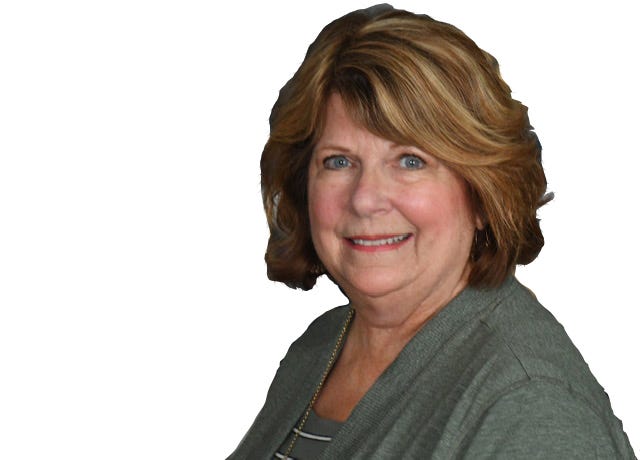Michigan seeking temporary morgue site for bodies of COVID-19 victims
 Karen Bouffard
Karen BouffardState officials and members of the Michigan Interdisciplinary Mortuary Response Team are looking for a site to store the bodies of COVID-19 victims as morgues at Metro Detroit hospitals and funeral homes have been filled to capacity.
Officials from the Michigan Health and Hospital Association and the Michigan Funeral Directors Association said Friday the site will be located in Metro Detroit, where hospitals and funeral homes have been stressed by the number of people who have died. The three-county region has experienced 1,088 COVID-19 deaths or 85% of Michigan's fatalities.
Health care workers at the Detroit Medical Center's Sinai-Grace hospital told The Detroit News this week that they have been overwhelmed by coronavirus patients, resulting in patients dying in hallways and nurses searching for body bags and places to put the dead.
"The state is exploring locations for a potential site for the storage of remains in the event it is needed," said Lynn Sutfin, spokeswoman for the Michigan Department of Health and Human Services. "No decisions have been made on a location at this time."
A total of 205 people died from the virus from Thursday through Friday afternoon in Michigan— the largest number of COVID-19 deaths yet in a 24 hour-period, according to state data.
The state had a total of 1,281 new cases in the 24-hour period, bringing Michigan's total for infections to 22,783, the state reported Friday. The new tally is an increase from Thursday, but is the second lowest one-day increase since March 31.
The high number of deaths has placed an unprecedented burden on hospitals, which have limited capacity in their morgues, said Ruthanne Sudderth, senior vice president for public affairs at the Michigan Health and Hospital Association.
"We do know that there are members in Southeast Michigan who have had challenges with storage, and so they have made requests for mobile refrigeration units to come and help with some of those capacity issues," Sudderth said.
"The state is working on popping up a site in Southeast Michigan, I believe in the Livonia area, for storage as well. I don't know if that's in an existing structure, or a refrigeration area or tents," she said.
"We expect that to be up and running in about a week."
Asked why hospitals are struggling to find space for the deceased, Sudderth said the problem is the sheer number of people who have died in the region.
"The system wasn't designed for this many people to pass away in such a short period of time," she said.
Southeast Michigan funeral homes also are struggling to keep up, said Phil Douma, executive director of the Michigan Funeral Directors Association.
"The increasing number of COVID-19 decedents is certainly applying pressure on funeral homes," Douma said Friday.
Some Metro Detroit funeral homes are reaching their capacity to store bodies — not only because so many people have died, but because many families are postponing funeral services, he said.
Gov. Gretchen Whitmer's stay-at-home order, which has been extended through April 30, allows no more than 10 people to attend visitation or burial services, Douma noted.
"Because of the restrictions on funeral services, many families are choosing to delay those services until after this crisis has passed, which places additional challenges on funeral homes with regard to the sheltering of those remains," he said.
"Fortunately families are very understanding of the importance of adhering to the guidelines and restrictions, and funeral directors are continuing to do their work of serving families in their time of need while at the same time protecting public health and safety."
In addition to the complication of social distancing, the highly contagious virus presents challenges, Douma added.
"In some cases, the next of kin is not only potentially exposed to the virus, but actually in the hospital being treated for a COVID-19 infection," he said, noting he spoke Thursday to two funeral homes about that problem.
"That presents a real challenge with regard to being able to communicate with that individual with regard to how they wish to proceed with arrangements for the deceased."
Some area funeral homes have supplemented their capacity for sheltering remains by renting additional refrigerated storage space, Douma said.
Funeral directors also have been working through the Michigan Interdisciplinary Mortuary Response Team to identify a potential site to store remains of the deceased, he said.
The team is made up of different professions, all with the common goal of assisting county medical examiners, emergency management and public health with mass fatality management during a disaster or emergency.
Partner organizations include the Michigan Funeral Directors Association; the state Department of Health and Human Services; the state Bureau of EMS, Trauma and Preparedness; the Michigan Dental Association Identification Team; and Michigan State University's Forensic Anthropology and Forensic DNA departments.
MiMORT Commander Tim Schramm, the funeral director for Howe-Peterson Funeral Home in Dearborn and Taylor, said he could not confirm that a site has been identified or that plans are underway for temporary morgue.
"MiMORTS continues to evolve its plan to meet anticipated needs of the state, local medical examiners and hospitals," Schramm said. "That response evolves every day in looking what's going on in all scenarios — at local hospitals, local medical examiners, local funeral homes.
"I don't have anything that I can confirm for you right now, except for the fact that our team continues to work with the state, evolving our operational plan to help the surge in capacity for human remains at hospitals and funeral homes.
Kbouffard@detroitnews.com
Twitter: @kbouffardDN
Detroit News Staff Writer Beth LeBlanc contributed.